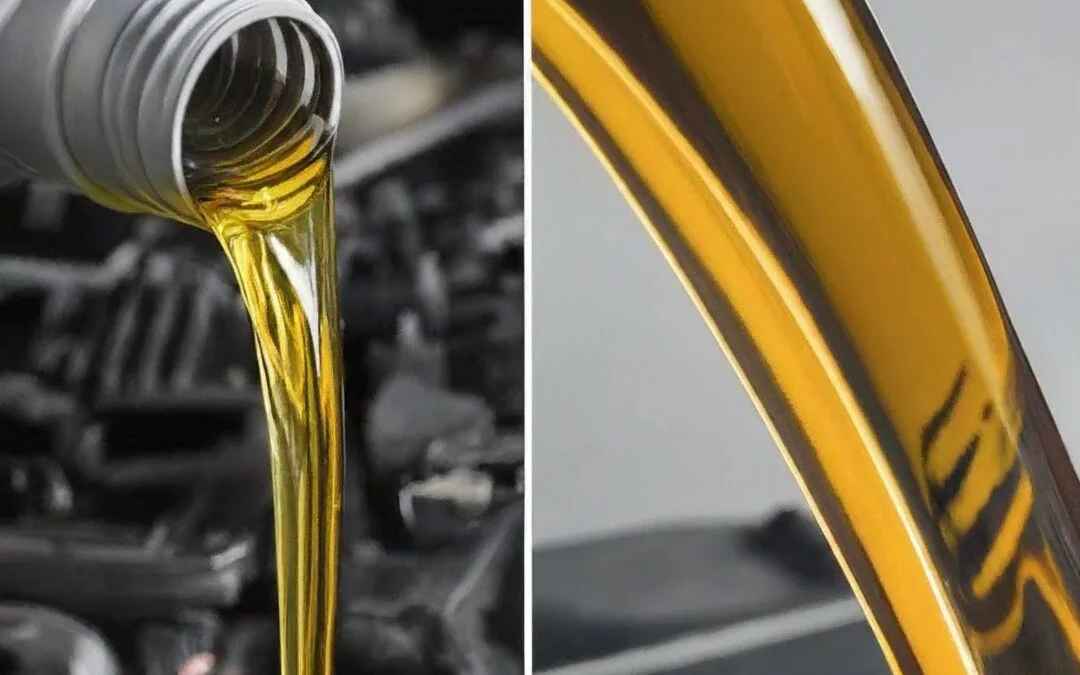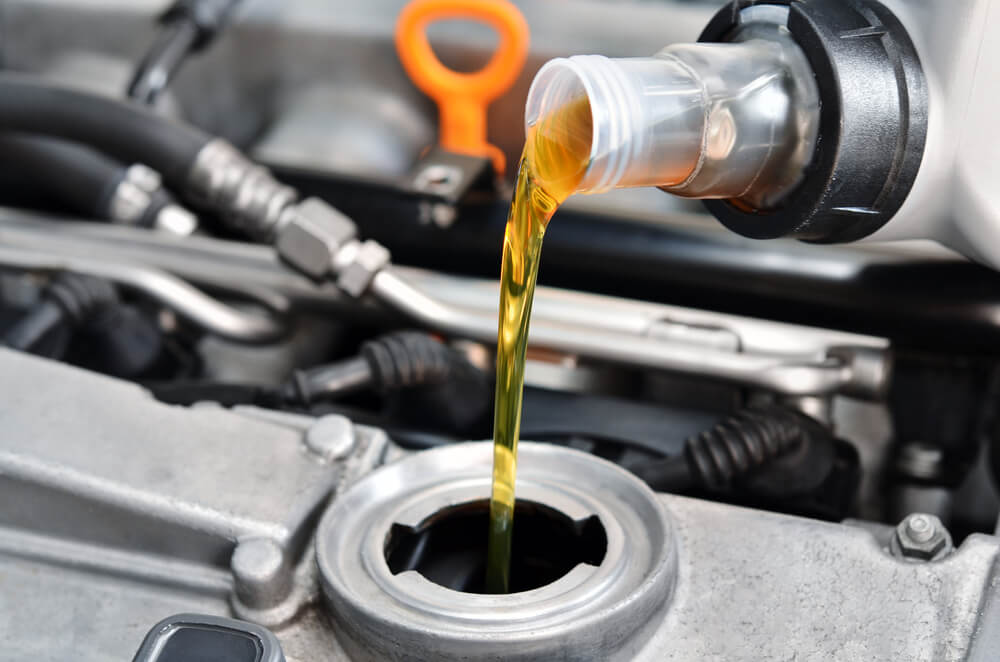Tittle: Can we mix motor oil and transmission fluid for recycling ?
Introduction:
Recycling has become an essential part of our efforts to reduce environmental impact and preserve our planet for future generations. When it comes to automotive maintenance, recycling motor oil and transmission fluid is a practice that not only benefits the environment but also helps conserve valuable resources. However, a common question that often arises is whether it’s permissible to mix motor oil and transmission fluid for recycling purposes. In this blog, we’ll delve into the intricacies of this issue, exploring the best practices for recycling these essential vehicle fluids and shedding light on the potential pitfalls of mixing them. By the end, you’ll have a clearer understanding of how to responsibly handle and recycle these fluids, making eco-conscious choices for your automotive maintenance routine.
A. Recycling Motor Oil: An Eco-Friendly Commitment
Recycling motor oil is not just a task; it’s a commitment to environmental responsibility. The process of collecting and recycling used motor oil helps safeguard our planet by reducing pollution, conserving valuable resources, and promoting a sustainable future.
The Environmental Impact: Every year, millions of gallons of motor oil are changed in vehicles around the world, and the improper disposal of this oil poses a severe threat to the environment. A single gallon of used motor oil can contaminate up to a million gallons of water, making it essential to divert it from our ecosystems. When motor oil is recycled correctly, it’s cleaned and purified, ready to be reused or repurposed for various applications.
Resource Conservation: Recycling motor oil not only prevents environmental harm but also conserves valuable resources. Oil is a finite resource, and every gallon of recycled motor oil reduces the need for new crude oil production. Additionally, the energy required to refine used oil into a reusable product is significantly less than that needed for producing fresh motor oil.
Economic Benefits: Recycling motor oil also holds economic advantages. It reduces the cost of disposal for consumers and businesses alike, making responsible oil disposal an economically viable choice. Recycling facilities can turn used oil into various products, from lubricants to asphalt additives, contributing to local economies and job creation.
The Process: The process of recycling motor oil is well-established and straightforward. After collection, used motor oil undergoes a thorough filtration and re-refining process to remove contaminants. The resulting product is as good as virgin oil and can be used in engines and machinery.
Your Role in Recycling Motor Oil: As a responsible vehicle owner, you can play a crucial role in recycling motor oil. It begins with ensuring that your used oil is collected and disposed of at a certified recycling facility or an auto repair shop with recycling capabilities. By doing so, you actively contribute to environmental conservation and the responsible use of resources.
Recycling Transmission Fluid: A Greener Gear for a Sustainable Future
Recycling transmission fluid is a crucial step toward environmental sustainability. This often-overlooked automotive fluid plays a vital role in the efficient operation of vehicles, and responsibly managing its disposal can have a profound impact on our environment. Let’s delve into the significance of recycling transmission fluid and how it can pave the way for a greener, more eco-friendly future.
Environmental Stewardship: Just like motor oil, transmission fluid requires proper disposal to prevent contamination of our environment. When discarded incorrectly, transmission fluid can seep into soil and water bodies, causing harm to ecosystems and wildlife. Recycling transmission fluid mitigates these risks and contributes to a cleaner, healthier planet.
Resource Efficiency: Transmission fluid, often composed of high-quality base oils and additives, is a valuable resource. By recycling it, we extend the life cycle of these precious components, reducing the need for fresh raw materials. This resource efficiency not only conserves natural resources but also reduces energy consumption during the production of new transmission fluid.
Economic Benefits: Recycling transmission fluid has economic advantages as well. It cuts down the costs of disposal, both for individuals and businesses. Moreover, recycling facilities can transform used transmission fluid into various products, including lubricants and hydraulic fluids, boosting local economies and creating jobs.
The Recycling Process: The process of recycling transmission fluid is both established and efficient. It typically involves collecting the used fluid and subjecting it to filtration and re-refining processes. This rejuvenated fluid can then be utilized in a multitude of applications, including the maintenance of your vehicle.
Your Role in Recycling Transmission Fluid: As a responsible vehicle owner, you play a vital role in the journey towards recycling transmission fluid. It starts with ensuring that your used transmission fluid is managed by a certified recycling facility or an automotive service provider with recycling capabilities. This simple step goes a long way in preserving the environment, conserving resources, and stimulating local economies.
Can you mix Motor Oil and Transmission Fluid for Recycling: A Cautionary Tale
Recycling motor oil and transmission fluid is a commendable eco-friendly endeavor, but when it comes to mixing these two vital fluids, it’s important to exercise caution. While the idea of simplifying recycling might seem appealing, combining motor oil and transmission fluid can lead to unexpected complications and challenges. In this article, we explore the potential pitfalls of mixing these fluids and why it may not be the best practice for recycling.
The Implications of Mixing: While both motor oil and transmission fluid are petroleum-based, they serve distinct purposes in a vehicle’s operation. Mixing them can alter their chemical composition, making them unsuitable for recycling. Incompatibilities can lead to difficulties in the recycling process, potentially rendering the entire batch unusable.
Contamination Concerns: Mixing motor oil and transmission fluid can result in contamination, which is a significant issue in recycling. Contaminated fluids are difficult to purify, and they may not meet the stringent quality standards required for recycling. This can lead to the rejection of the entire batch, ultimately defeating the purpose of recycling.
Legal and Regulatory Implications: Many regions have specific regulations governing the recycling of motor oil and transmission fluid. Mixing these fluids might put you in violation of these regulations, potentially subjecting you to legal consequences. It’s essential to adhere to these rules to ensure responsible and legal recycling.
Best Practices: Rather than mixing motor oil and transmission fluid, it’s advisable to keep them separate during disposal. Most recycling facilities and auto repair shops have systems in place to handle these fluids individually. By doing so, you ensure a smoother and more effective recycling process, reducing the chances of rejection and complications.
A. Explore Alternative Ways to Responsibly Dispose of Motor Oil and Transmission Fluid Separately
Responsible disposal of motor oil and transmission fluid is not only a matter of environmental stewardship but also a legal requirement in many places. By exploring alternative ways to manage these fluids separately, we can make a significant positive impact on our environment while staying in compliance with local regulations. Here are some effective methods to dispose of motor oil and transmission fluid responsibly:
1. Local Recycling Centers: Many communities have established recycling centers or collection points specifically designed for used motor oil and transmission fluid. These facilities ensure that the fluids are collected, processed, and recycled in an environmentally friendly manner.
2. Certified Service Providers: When getting your vehicle’s oil or transmission fluid changed, opt for reputable auto repair shops or service providers that adhere to responsible disposal practices. They are equipped to handle these fluids separately and ensure they are disposed of or recycled correctly.
3. Household Hazardous Waste Programs: In areas where dedicated recycling centers are not available, household hazardous waste programs often provide a safe option for disposing of motor oil and transmission fluid. These programs offer scheduled collection events for various hazardous materials, including these fluids.
4. DIY Oil Recycling Kits: For those who perform their own oil changes, DIY oil recycling kits are available. These kits typically include containers and instructions for properly storing and disposing of used oil. They can be a convenient solution for home mechanics.
5. Reuse: In some cases, used motor oil can be reused for non-automotive purposes, such as lubricating machinery or as an ingredient in some types of outdoor wood treatments. Before considering reuse, it’s crucial to ensure that the oil is free of contaminants and suitable for the intended purpose.
A. Best Practices for Recycling Motor Oil and Transmission Fluid: A Greener Road Ahead
Recycling motor oil and transmission fluid is an essential part of responsible vehicle maintenance, not only ensuring optimal vehicle performance but also contributing to environmental conservation. However, to maximize the benefits of this eco-friendly endeavor, it’s crucial to follow best practices that facilitate the seamless recycling of these essential fluids. Here are the key steps and guidelines to ensure you’re on the right path:
1. Segregate Motor Oil and Transmission Fluid: The first and most vital step in recycling is to keep motor oil and transmission fluid separate. Mixing these fluids can complicate the recycling process, potentially leading to contamination and rejection.
2. Store Used Fluids Safely: Store used motor oil and transmission fluid in sealed, labeled containers that prevent leakage and contamination. Keep them in a cool, dry place, away from direct sunlight or extreme temperatures.
3. Find a Certified Recycling Center: Identify and utilize a certified recycling center or automotive service provider with recycling capabilities. These facilities are equipped to handle, collect, and process used fluids according to environmental regulations.
4. Do Not Dispose in Drains or Sewers: Never pour used motor oil or transmission fluid down drains, sewers, or into the soil. Such practices can lead to environmental contamination, health hazards, and legal consequences.
5. Use Approved Recycling Containers: When transporting used fluids to a recycling facility, use containers specifically designed for this purpose. Avoid using makeshift containers that might leak or contaminate other materials in transit.
6. Follow Local Regulations and Guidelines: Adhere to local, regional, and national regulations regarding the disposal and recycling of motor oil and transmission fluid. Compliance not only ensures environmental protection but also avoids legal issues.
7. Do Not Mix with Other Substances: Avoid mixing used fluids with any other substances, chemicals, or contaminants. Recycling facilities prefer clean, uncontaminated materials for efficient processing.
8. Respect Collection Limits: Recycling centers may have limits on the quantity of fluids they can accept at one time. Ensure you are aware of these limits and adhere to them to facilitate the recycling process.
9. Consider Reusing if Possible: If the quality of used motor oil allows, consider reusing it for non-automotive applications, such as lubricating tools or treating outdoor wood. Always ensure it’s suitable for the intended purpose.
10. Educate Others: Spread awareness about the importance of recycling motor oil and transmission fluid to family, friends, and colleagues. Encourage responsible disposal practices to create a broader positive impact.
Conclusion:
In conclusion, the question of whether we can mix motor oil and transmission fluid for recycling is met with a clear answer: it’s generally not advisable. Mixing these two fluids can introduce complications, including contamination and potential legal violations, that hinder the recycling process. The best practice is to keep them separate and adhere to local regulations, ensuring that each fluid can be responsibly recycled on its own. By following these guidelines, we can effectively contribute to a more eco-conscious and sustainable approach to automotive maintenance and waste management while protecting our environment.
Useful links:
https://autoserve1.com/5-tips-for-recycling-vehicle-fluids/
Frequently Asked Questions (FAQ) about Mixing Motor Oil and Transmission Fluid for Recycling
Can motor oil and transmission fluid be mixed for recycling purposes?
- It’s generally not advisable to mix motor oil and transmission fluid for recycling. These fluids serve different functions and may contain additives that can complicate the recycling process.
2. Why is mixing motor oil and transmission fluid problematic?
- Mixing these fluids can lead to contamination, making it challenging to purify and recycle them. It can also violate local regulations and guidelines.
3. What should I do with used motor oil and transmission fluid separately?
- It’s best to store and transport these fluids separately in labeled, sealed containers. Dispose of them at certified recycling centers or automotive service providers with recycling capabilities.
4. Can I reuse used motor oil or transmission fluid for any other purposes?
- In some cases, if the quality is suitable, used motor oil can be reused for non-automotive applications, such as lubricating tools or treating wood. Always ensure it’s appropriate for the intended use.
5. Are there any legal consequences for mixing these fluids during recycling?
- Yes, mixing can potentially lead to legal consequences, as it may violate local regulations governing the recycling of these fluids.
6. What’s the environmental impact of mixing motor oil and transmission fluid?
- Mixing can lead to environmental contamination, which can harm soil, water, and aquatic life, posing risks to ecosystems and public health.
7. Where can I find information on local regulations and recycling guidelines?
- Local environmental agencies and recycling centers typically provide information on regulations and guidelines for responsible disposal and recycling.
8. Is there an alternative to mixing these fluids for recycling?
- Yes, the best practice is to keep motor oil and transmission fluid separate and adhere to local regulations. This ensures that both fluids can be efficiently recycled without complications.





Leave a Reply